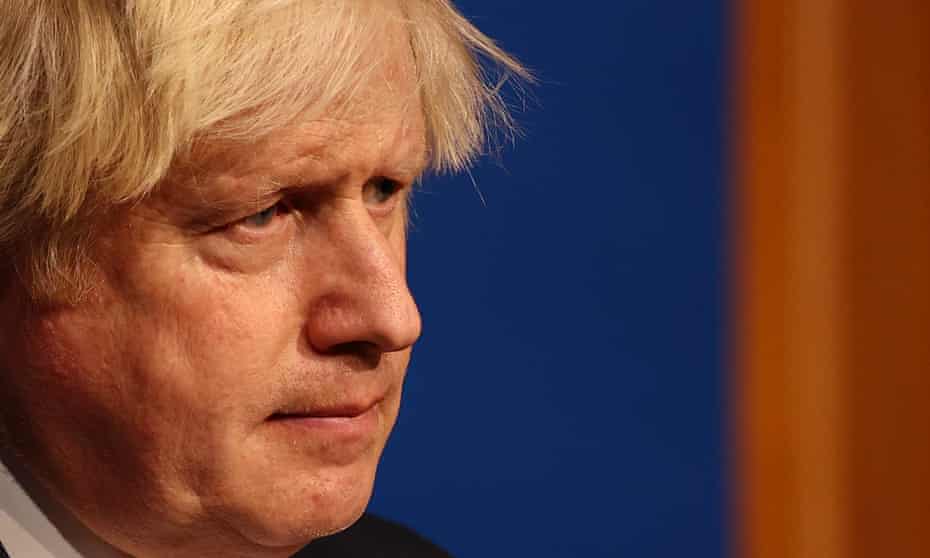Scandals and sackings: why critics say Boris Johnson is not fit to be PM
Analysis: some of the accusations levelled at the prime minister, from the Downing Street refurb to his handling of Home Office bullying

Boris Johnson has repeatedly been accused of riding roughshod over independent advisers and of mishandling the machinery of state during his time in No 10. Equally, a series of aides who were once very firmly in the tent have ended up either walking or being booted out.
Here are some examples of the behaviour the prime minister’s critics say makes him unfit for such high office.
Ministerial interests
Reports suggest Johnson’s independent adviser on ministerial interests is on the verge of quitting after the Electoral Commission report implied the prime minister misled him when he was investigating the funding of refurbishments to Johnson’s home. On Thursday, the prime minister denied lying to Christopher Geidt.
Lord Geidt’s predecessor, Alex Allan, quit in November after the prime minister refused to sack the home secretary, Priti Patel, despite Allan’s formal investigation finding evidence she had bullied civil servants.
LGBT advisory panel
The government’s LGBT advisory panel suffered a series of resignations over several issues before being officially disbanded. Three board members resigned in March over the delay in banning conversion practices.
One, Jayne Ozanne, said the equalities ministers Liz Truss and Kemi Badenoch were ignorant. A second, James Morton, said they were not committed to LGBT equality. The third, Ellen Murray, urged the government to “drop the trans culture war”.
Government legal department
The head of the government’s legal department resigned after a significant disagreement with the attorney general for England and Wales over plans to override parts of the Brexit deal on Northern Ireland. Jonathan Jones had repeatedly disagreed with Suella Braverman over points of law, but the final straw came over her interpretation of the EU agreement.
Ofcom
Much ministerial energy and political capital was expended reopening and revamping the selection process to give Paul Dacre – the former Daily Mail editor and Johnson’s choice to run the regulator – a better chance after he messed up his first interview.
Embarrassingly for the government, Dacre then decided he did not want the gig after all and pulled out.
Electoral Commission
Critics have said the government’s elections bill, introduced in September, would limit the Electoral Commission, including by stopping it launching prosecutions. Since the bill’s introduction, the importance of the commission’s work was underlined when it concluded the Conservative party had not properly reported the donation of £52,801 made to fund the refurbishment of the prime minister’s private residence.
Parliamentary standards commissioner
Kathryn Stone was in Downing Street’s sights last month as the prime minister made an abortive attempt to save an ally her investigation concluded had committed an “egregious” breach of lobbying rules.
Several ministers suggested Stone should quit, but then the government U-turned as it became clear its approach had proved desperately unpopular. That led to accusations the UK government had been used as a tool to undermine standards in public life in order to save the skin of a longstanding friend of Johnson.
Judicial review
The judiciary is one of the most fundamental elements of oversight in politics and critics say ministers are trying to cripple this by limiting the use of judicial review, where a judge examines the lawfulness of an action or a decision of a public body.
While ministers say the right has been abused, some MPs and peers have warned the plans would greatly limit accountability.
Dominic Cummings and Lee Cain
Johnson was thought to be heavily reliant on the close allies, who had helped run the Vote Leave campaign. But they were turfed out of No 10 last November after a power struggle that also sucked in the prime minister’s wife, Carrie Johnson.
There were suggestions they had lost Johnson’s favour over their treatment of his wife.
Allegra Stratton
Stratton was hired as Johnson’s spokesperson and originally intended to become the face of Downing Street during regular televised press conferences, for which a TV briefing room was installed at great cost. But her position within No 10 was severely undermined when that plan was dropped.
She fell further out of favour and resigned after the video emerged of her laughing at a question about Downing Street aides flouting Covid rules during a mock press conference.
Eddie Lister
One of Johnson’s most trusted aides, who followed him from London’s City Hall to Downing Street. He served as chief of staff in both roles – albeit on an interim basis in the latter – as well as being ennobled by his boss.
But Lord Udny-Lister left in April and later apologised for his involvement in approving a £187m taxpayer-underwritten loan to a property company for which he was a paid adviser.
Will Walden
Walden had also been a trusted aide earlier in Johnson’s career – standing by him while he was mayor of London, through his Vote Leave days and then stepping in to help his former boss when he became prime minister. But, once Cummings consolidated his own power, Walden was out.
Lynton Crosby
Similarly sidelined was the Australian election specialist, who had delivered Johnson electoral successes in London. Along with Walden, Crosby formed part of the City Hall group who found themselves increasingly squeezed as the Vote Leave faction’s grip on Downing Street tightened.
Samuel Kasumu
Johnson’s adviser on civil society and communities resigned after a row in April over a report on racial disparities that concluded the UK did not have a systemic problem with racism.
Kasumu was the prime minister’s most senior black adviser. He had previously said he was considering resigning over the conduct of Badenoch, suggesting she may have broken the ministerial code when she publicly criticised a black journalist on social media, and that tensions over race policies within No 10 had become unbearable.
